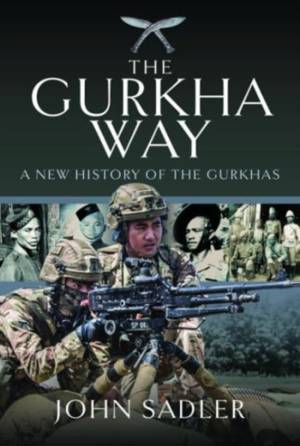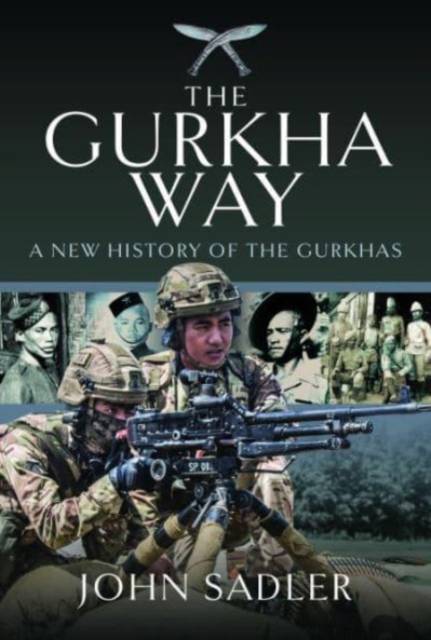
- Retrait gratuit dans votre magasin Club
- 7.000.000 titres dans notre catalogue
- Payer en toute sécurité
- Toujours un magasin près de chez vous
- Retrait gratuit dans votre magasin Club
- 7.000.0000 titres dans notre catalogue
- Payer en toute sécurité
- Toujours un magasin près de chez vous
34,95 €
+ 69 points
Format
Description
In the 18th century in the town of Gorkha, just north of Kathmandu, ruler Prithvi Narayan fought campaigns against his neighbors and the British. During the fighting his warriors, renowned for their aggression and courage, gained the respect of the British, who appreciated that the steadfast warriors would make excellent soldiers. Upon the declaration of peace in 1816, a partnership was born. This alliance would play a vital role in UK defense over the next two centuries, from surviving the Indian Mutiny of 1857 and fighting in the jungles of Burma to the Khyber Pass, which would keep the Gurkhas in action for ninety years. The First World War sent the Regiment to the trenches, where battalion after battalion was decimated. Some 20 Gurkha battalions were deployed in the Second World War, which was soon increased to 45 following Dunkirk. Around 250,000 Gurkha soldiers would serve and were deployed most significantly in North Africa but also served with distinction in the Italian Campaign and Monte Cassino, as well as the decisive battles of Imphal and Kohima in the Far East.
while the Gurkhas saw a drop in overall numbers post-war, they have continued to make integral contributions to many operations, including the Falklands and in Afghanistan, which this book examines extensively, with a special focus on Operation Herrick. In The Gurkha Way, John Sadler tells the story of the Gurkhas from their inception to modern day through interviews, unpublished diaries and correspondence. With over 200 years' experience, these steadfastly loyal soldiers are a link to an imperial past but also a key component of the modern British army. There is no other comparable unit in any of the world's armies, (with the obvious exception of the Indian Army), or one more respected and loved by the British.
while the Gurkhas saw a drop in overall numbers post-war, they have continued to make integral contributions to many operations, including the Falklands and in Afghanistan, which this book examines extensively, with a special focus on Operation Herrick. In The Gurkha Way, John Sadler tells the story of the Gurkhas from their inception to modern day through interviews, unpublished diaries and correspondence. With over 200 years' experience, these steadfastly loyal soldiers are a link to an imperial past but also a key component of the modern British army. There is no other comparable unit in any of the world's armies, (with the obvious exception of the Indian Army), or one more respected and loved by the British.
Spécifications
Parties prenantes
- Auteur(s) :
- Editeur:
Contenu
- Nombre de pages :
- 360
- Langue:
- Anglais
Caractéristiques
- EAN:
- 9781399068239
- Date de parution :
- 30-12-23
- Format:
- Livre relié
- Format numérique:
- Genaaid
- Dimensions :
- 155 mm x 234 mm
- Poids :
- 658 g

Les avis
Nous publions uniquement les avis qui respectent les conditions requises. Consultez nos conditions pour les avis.






